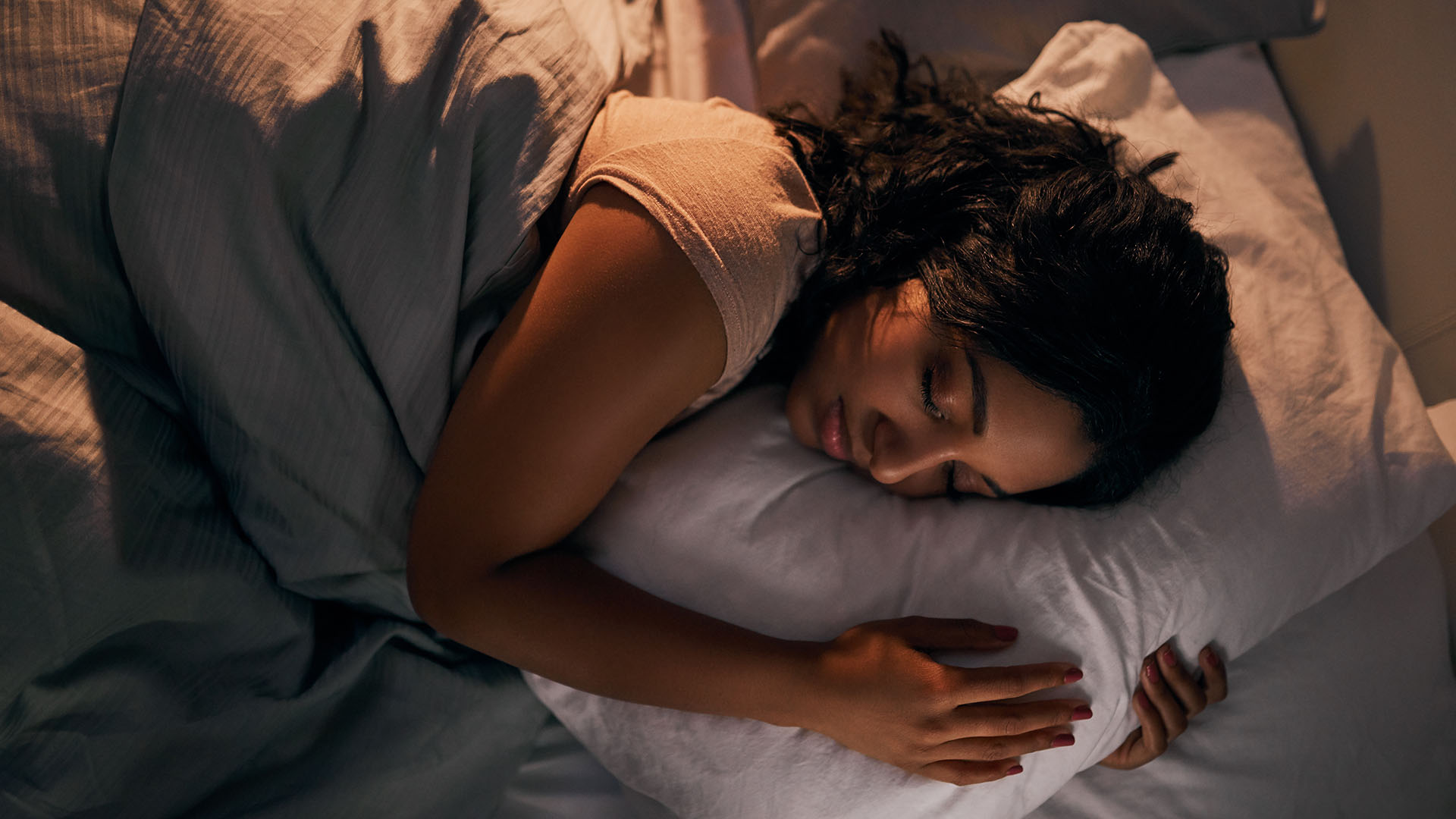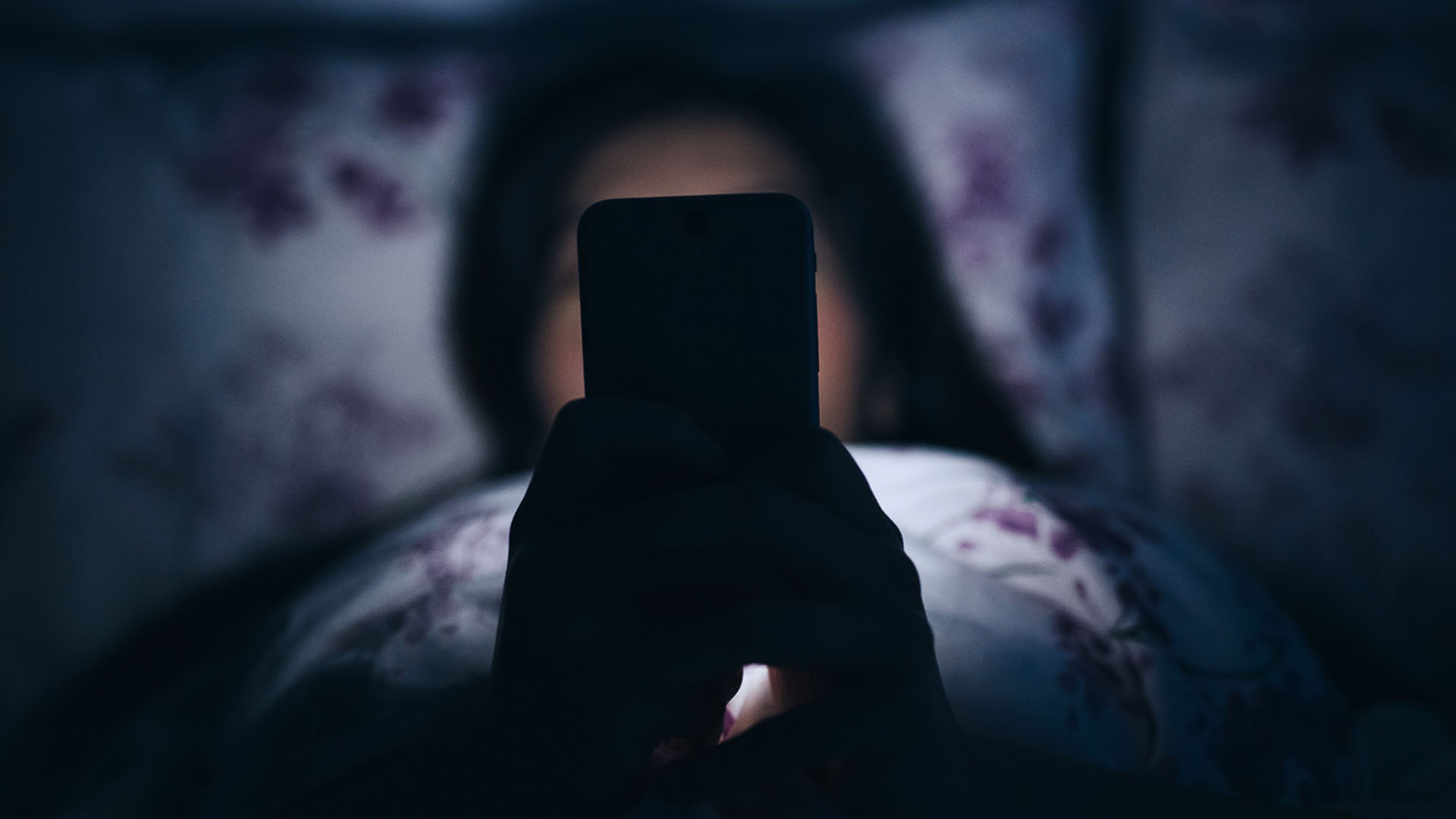How to get a good night’s sleep if you’re stressed
A huge majority of us worry about how to get a good night’s sleep when we’re stressed – making us more anxious and therefore affecting our sleep. So how can we de-stress and get a better night’s sleep?
If you’re uncomfortable in bed, upgrading to the best mattress for your sleep style, or finding a new pillow will help. But if it’s your brain that can’t settle, that requires a different approach.
Stress is one of the most common factors for poor sleep, with one study (opens in new tab) by the American Psychological Association, revealing that nearly half of adults (43 per cent) believe that stress has caused them to lie awake at night in the past month, while they also reported that this stress meant that they had less quality sleep because of stress.
Stress can affect us mentally, as well as physically, so it’s important we recognise when we’re stressed and give our bodies enough time to relax before bedtime. We look at how stress affects our bodies and sleep patterns and ways we can try and minimize the effects of stress on our sleep, and ultimately our whole lives.
How can stress affect sleep?
Ever had racing thoughts as you try to fall asleep or tried to get to sleep after a stressful day? When we experience stress, whether it’s related to work, our emotional lives or long-term issues, it releases a hormone called cortisol, which if it continues to be released will affect our sleep cycle.
Stress makes our brains more wired, puts our nervous system on edge and even affects our gut. While stress can also have an impact on our breathing – making us more alert and giving us more problems as we fall off to sleep, restricting our airways and making us more prone to a sleep disorder called sleep apnea.
These effects of chronic stress, over a certain period of time, could lead to us finding it harder to fall asleep, and when we do eventually fall asleep we find it more difficult to reach a restorative type of sleep – leading to other sleep disorders such as Insomnia.
Why does stress affect sleep?
“Sleep is essential for our physical and mental health, improving all aspects of the mind, body, and soul. When we achieve consistent, good-quality sleep, we have the physical and mental ability to deal with day-to-day challenges,” explains, sleep expert Dr Nerina Ramlakhan.
“While short-term stress can be motivational and healthy, long-term stress increases the activity of our nervous system, stir up racing thoughts and can make it harder for us to fall asleep.”
In order to fall asleep, and stay asleep for the recommended 7-9 hours a night we need to be in a relaxed state. When money, work or emotional worries are racing through our head it sends a sign to the brain that we need to be alert, and ready for danger, and not ready to relax or rest.
The pineal gland is the part of our brain which is associated with giving the rest of our body the go-ahead for sleep – as it produces the melatonin hormone we all need for sleep. Stress impairs this gland, meaning it’s harder to fall asleep and stay asleep. So, how can we eradicate this stress before bedtime?

Five techniques to calm down before bedtime
If you do find yourself in a more heightened stress state before bed, here are five techniques that can calm the mind and help you prepare for a good night’s sleep.
Shift your thoughts
Dr Ramlakhan recommends trying to move your attention away from your thoughts and emotions. She explains: “Shifting your thoughts away from the whirlwind going on in your head will quiet your mind. Although it can be easier said than done, you could try some breathing exercises and notice the things that you can see, touch, hear and feel.”
Create a sleep haven
She also recommends creating a good sleeping environment. “Ensuring your bedroom is dark, cool and technology free, all help to create a sanctuary for sleep. Small sleeping adjustments, such as these, will increase the natural release of the hormone melatonin, which makes us more tired and want to go to sleep.”

Cut down screen time
Cutting out screen time is also vital to lower stress levels, says Amy Korn-Reavis (opens in new tab), a Sleep Specialist Coach at BetterUp.
“Make sure you are getting about 30 minutes of time without using screens prior to bedtime. The circadian rhythm is the internal clock that regulates our sleeping patterns. Exposure to bright light stimulates the ‘awake’ part of this circadian rhythm, which allows us to feel more alert in the morning and to fall asleep easier at night.”
Get some light
She also suggests getting 30 minutes to 2 hours of light in the morning, depending on how bright the light is. This can be achieved either through daylight or by using a light therapy box.

Write it out
Journalling is also used by many who suffer from anxiety and stress – as it’s a way to brain dump all the ‘stressful activities’ before you get into bed. “Write out whatever is on your mind, without judging it. It can include everything from, ‘today I had a frustrating meeting’ to, ‘remember to buy milk tomorrow.’ When you write it down your brain can let go of the information and stop problem-solving it,” explains Korn-Reavis.
Meditate or try a breathing exercise
Meditation also helps to induce sleep – as it slows your mind and helps you focus on the present – while a study (opens in new tab) by the National Institute of Mental Health in 2019 showed that mindfulness meditation helps to induce sleep.
Breathwork is similar to meditation – and uses your breath to calm the nervous system – getting rid of stress and allowing you to relax. If you’re new to both there are thousands of free videos on YouTube and other video-sharing platforms. Apps such as Calm and Headspace also have specific sleep meditations, even ones which concentrate on stress, which guide you through resetting and calming your mind before bedtime.
For all the latest Technology News Click Here
For the latest news and updates, follow us on Google News.
